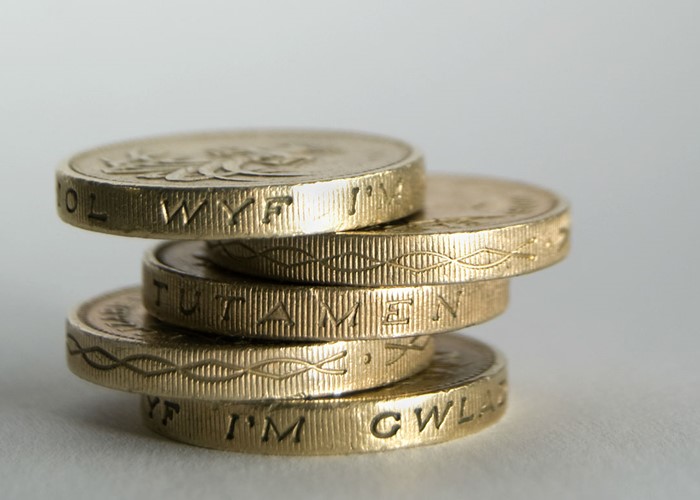Weak pound 'could fuel 16% rise in dividend income'

The weaker pound will be good news for some investors.
The falling strength of the pound isn’t bad news for everybody.
Financial data firm Markit has predicted that dividends paid by FTSE 350 companies will rise by 16% year-on-year in the final quarter of 2016.
Investors are likely to enjoy a rise in dividend payments as a weak pound gives a boost to companies that earn all or part of their revenue in dollars.
Compare stocks & shares ISAs, SIPPS, share dealing services and more with loveMONEY
How to benefit from a weak pound
Since the UK voted to leave the EU the value of the sterling has plunged.
On Friday, the pound hit its lowest level against the dollar for 31 years, sparked by fears of a ‘hard Brexit’.
Businesses that import stock from abroad to sell in the UK like clothes and food retailers will suffer the most from a weak pound as buying power is reduced.
However, some companies like BP, Shell and HSBC, earn their revenue in US dollars, which means when earnings are translated into sterling investors indirectly get a boost.
Russ Mould, investment director at stockbrokers AJ Bell, said: "A weak pound makes selecting the right investment sector very important because exchange rates tend to affect all companies with similar business models.
"A bad stock in good sector will tend to outperform a good stock in a bad sector and so looking at sector trends can be one way to identify potential winners and losers."
Compare stocks & shares ISAs, SIPPS, share dealing services and more with loveMONEY
Top picks
Markit reckons oil and gas, technology and telecoms stocks will be among the top picks benefitting from the weak pound.
Only yesterday, Brent crude hits its highest level of 2016 following speculation that Russia could cap production along with other major oil producing nations.
Ian Forrest, investment research analyst at The Share Centre, recommends Royal Dutch Shell and BP.
The companies been paying attractive dividends for a while, which are now unlikely to be cut thanks to oil prices rallying.
He said: “The rise in the oil price reduces the chances of those two companies cutting dividend payments, but it needs to remain above $60 to provide more certainty of that.”
Have you missed the boat?
Investing in firms that earn money in dollars is a good way to protect your dividend income from a weak pound.
These firms have performed well since the vote to leave the EU; however, this has obviously pushed up the cost of buying them.
Those looking to invest now will need to consider whether the pound is likely to fall further.
Some investors certainly think that's the case.
Richard Buxton, CEO of Old Mutual Global Investors, told finance news site This is Money that the lack of demand from foreign fund managers buying UK firms suggested that many felt the pound had further to fall.
More on investing:
Is crowdfunding suitable for older investors?
Comments
Be the first to comment
Do you want to comment on this article? You need to be signed in for this feature